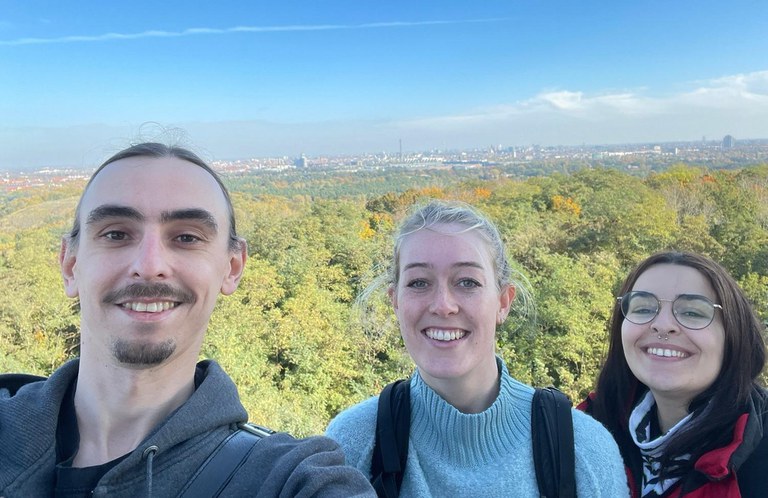Exploring Climate Impact Attribution for Tropical Cyclones in Mozambique: My STSM Experience at PIK
During my stay, I was warmly welcomed at the group of Transformation Pathways for whom I gave a seminar (my first one during my PhD!) where I shared the plans and activities of the COMPASS project and my PhD. During this seminar, we had interesting discussions which have helped me getting a better understanding of the field of impact and climate attribution.
Next to the seminar, I had meetings with over ten colleagues who were all very open, kind and interested. Dominik Paprotny introduced me to his dynamic flood vulnerability model and taught me how to use this for impact attribution of our case study about tropical cyclones in Mozambique. He also introduced be to various sources for socioeconomic and impact data that can be used for impact attribution and evaluation in Mozambique.

Matthias Mengel shared the work they have been doing with their tropical cyclone rainfall model, which can possibly be used to compute counterfactuals for our case study. Simon True, who I had already met during his STSM at the university I work at, helped me get acquainted to the sea level rise dataset of ISIMIP, which can be used as part of our attribution framework.
This experience has not only helped me advance my knowledge and research but also helped me grow as a young researcher and expand my network, which is very valuable for a first-year PhD like me. So a big thank you to the EU COST Association and COST Action CA19139 PROCLIAS for supporting this STSM! Keep an eye out for our climate and impact attribution assessments of compound flooding from tropical cyclones in Mozambique!


